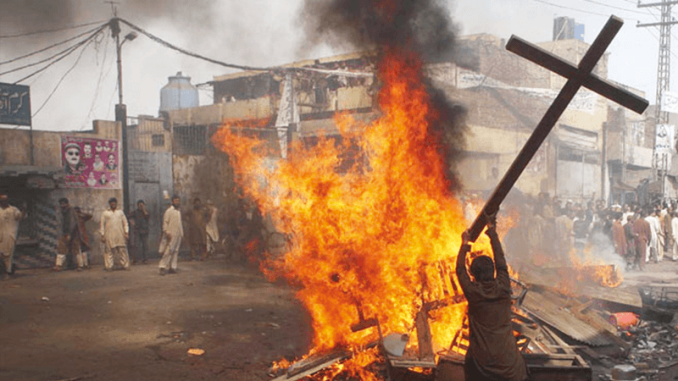The saying “only a foolish man runs away from his home and sets it on fire from exile as if he would never come back home” is a poignant reminder of the importance of responsible activism. It speaks to the idea that those who seek to effect change must do so with a sense of responsibility and accountability, rather than simply acting out of self-interest or a desire for power.
In recent years, this saying has taken on a new relevance in the context of the Biafran agitation movement, which seeks to create a separate, independent state for the Igbo people in Nigeria. While there are certainly valid concerns and grievances that underpin this movement, the actions of some of its more extreme adherents have caused significant harm and insecurity in the communities they claim to represent.
The Biafran agitation movement has been ongoing for decades, with roots in the struggle for self-determination and resistance against marginalization and oppression of the Igbo people in Nigeria. While there have been peaceful and lawful efforts to push for change, some individuals have chosen to take more extreme measures, including advocating for violence and even committing acts of violence themselves.
One of the major problems with this approach is that it often leads to increased insecurity and harm in the very communities that Biafran agitators claim to be fighting for. For example, there have been numerous reports of attacks on police stations, government buildings, and other public infrastructure in Igbo land, which have resulted in the loss of lives and destruction of property. These attacks have also sparked a backlash from security forces, who have been accused of human rights violations and excessive use of force in their attempts to quell the violence.
Another issue is that some Biafran agitators who are based abroad often seem to lack a deep understanding of the realities on the ground in their home communities. They may make inflammatory statements or call for actions that could have devastating consequences for people who are already struggling to get by. For example, some have suggested that the Igbo should boycott elections or engage in civil disobedience, which could lead to further political instability and economic hardship.
Moreover, it is important to note that the Biafran agitation movement is not monolithic, and there are many different factions and groups with their own agendas and priorities. While some may be genuinely committed to pursuing self-determination for the Igbo people, others may be motivated by personal gain or have ulterior motives. It is therefore essential to approach this issue with nuance and sensitivity, and to avoid making sweeping generalizations or assumptions about the motivations or actions of all those who identify with the Biafran cause.
One of the most notable examples of this is the phenomenon of Biafran agitators based abroad who use social media to stoke tensions and foment violence in Nigeria. These individuals often have little direct connection to the communities they claim to be fighting for, and their rhetoric often inflames tensions and encourages violent action.
Many Biafran agitators based abroad use social media platforms like Twitter, Facebook, and YouTube to disseminate their messages and reach a wider audience. While social media can be a powerful tool for organizing and mobilizing people, it can also be easily misused to spread disinformation and propaganda.
Some of these agitators have been known to post graphic images of violence and call for retaliation against perceived enemies of the Biafran cause. This type of messaging has the potential to trigger violent clashes and exacerbate existing tensions between different ethnic and religious groups in Nigeria.
Moreover, some of these agitators have been accused of funding and supporting armed groups operating in Nigeria, including the Indigenous People of Biafra (IPOB) and the Eastern Security Network (ESN). These groups have been linked to a range of violent incidents, including kidnappings, assassinations, and attacks on police and military installations.
It is worth noting that not all Biafran agitators support or engage in violence. Many individuals and groups involved in the movement are committed to peaceful activism and dialogue as a means of achieving their goals. However, the actions of a small minority of violent agitators have had significant and far-reaching consequences, both for the Biafran movement and for the communities affected by their actions.
There have been numerous reports of attacks on police stations, government buildings, and other targets in the South-East region of Nigeria that have been linked to Biafran agitators based abroad. These attacks have resulted in the loss of life and property, and have created a climate of fear and instability in the affected communities.
These individuals often seem to have little concern for the consequences of their actions, either for the communities they claim to be fighting for or for the broader Nigerian society. By using social media to encourage violence and stoke division, they are setting the stage for a potential conflict that could have devastating consequences for all involved.
In many ways, these agitators are the embodiment of the saying that only a foolish man runs away from his home and sets it on fire from exile as if he would never come back home. By acting in this way, they are not only undermining their own cause, but also causing real harm to the very communities they claim to be fighting for.
Finally, the Biafran agitation movement has raised important questions about the rights and grievances of the Igbo people in Nigeria. However, it is crucial that those who seek to effect change do so in a responsible and accountable manner. Only by acting in this way can the Biafran agitators truly make progress towards their goals, and avoid causing further harm and instability in the communities they claim to be fighting for.




















GIPHY App Key not set. Please check settings